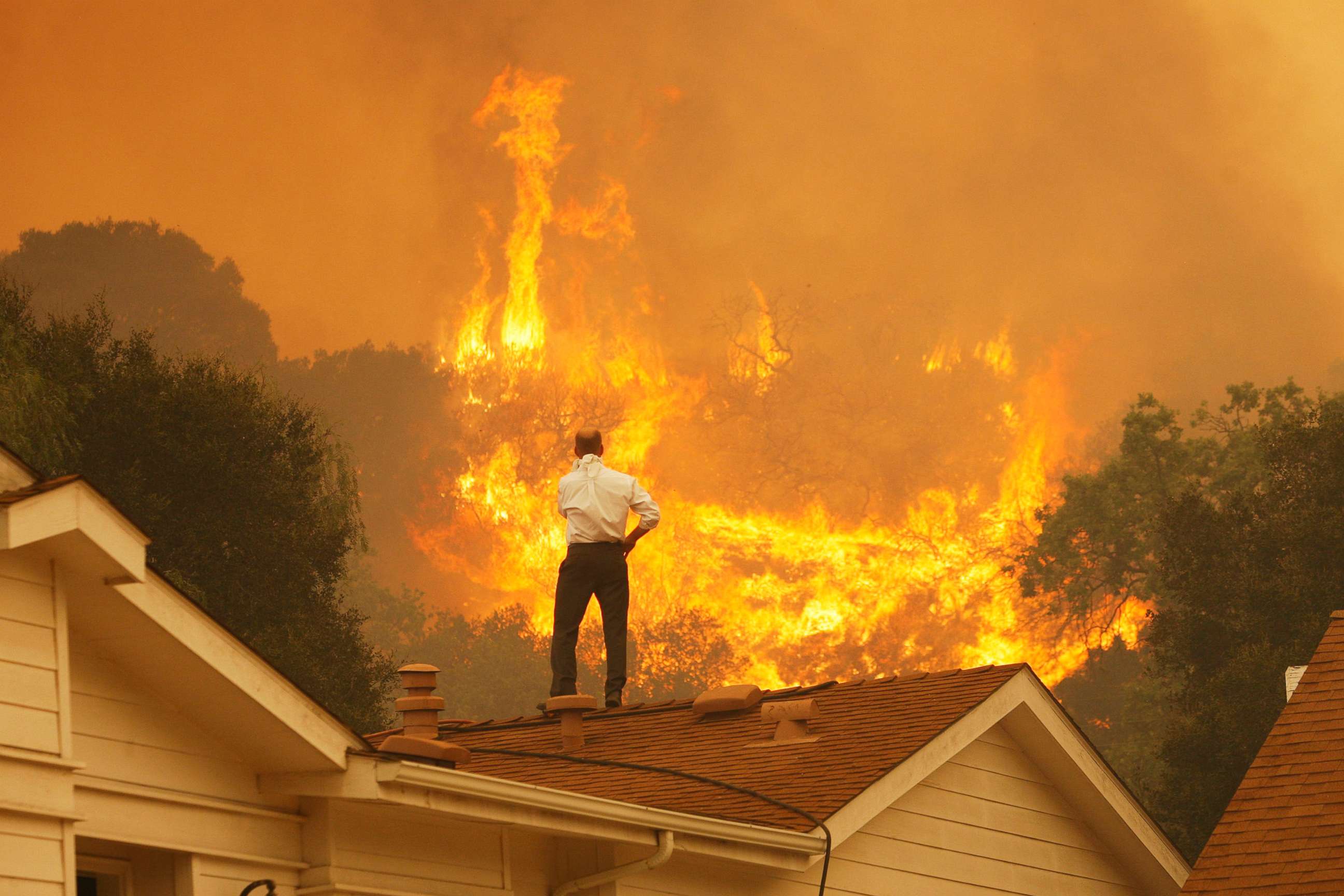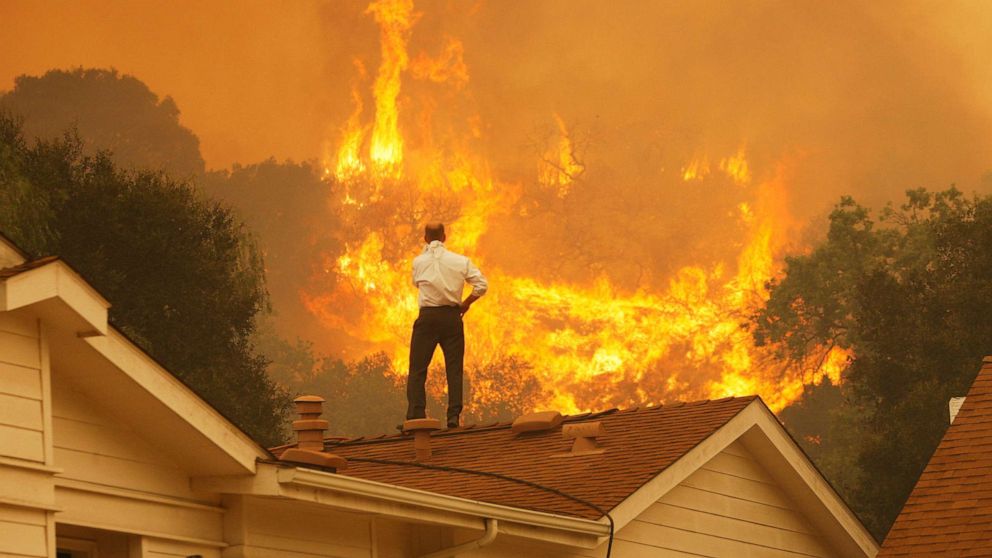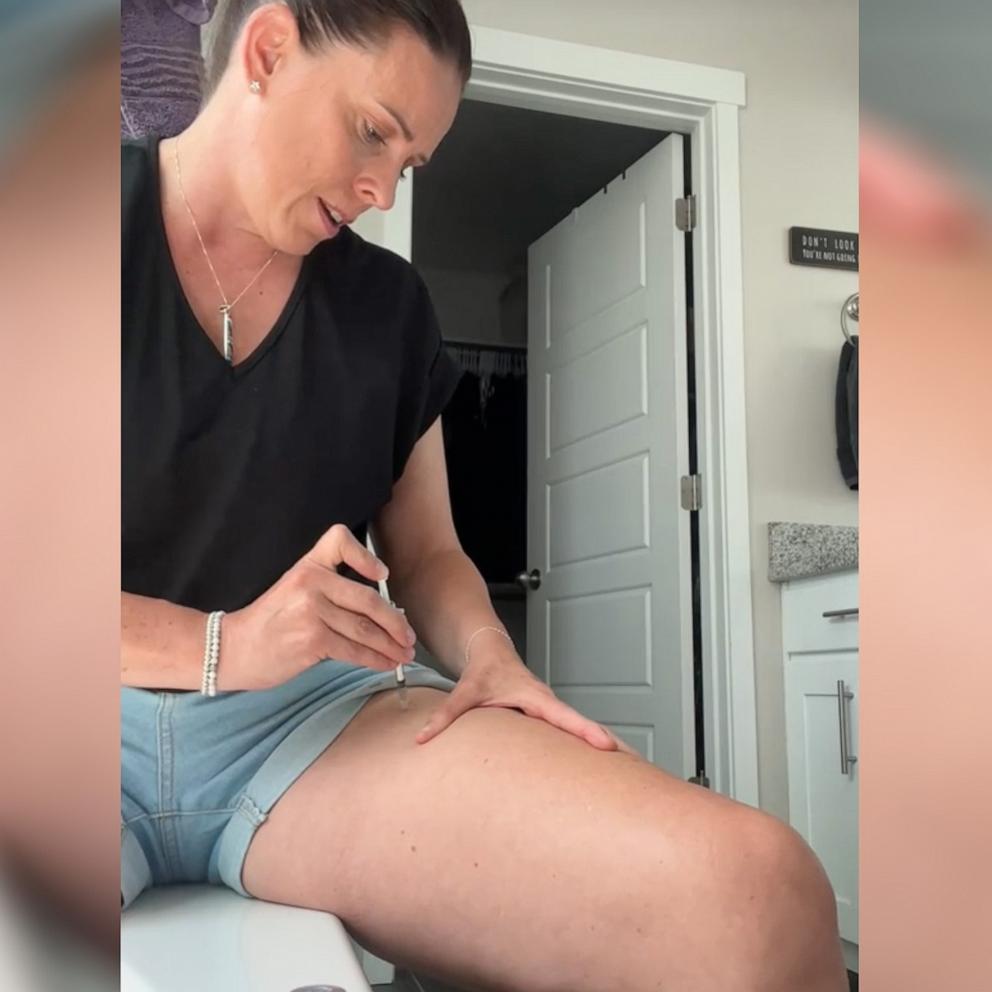Climate change also has a mental health toll
For Meg Keene, climate change is something that not only needs to be addressed but is also very difficult to cope with personally.
"As someone with anxiety, I kind of try not to think too much about the future with regards to climate change, because it's so terrifying," Keene, 41, said.
Keene's life has been bookended by devastating wildfires in increasingly hot and dry California. As a baby she survived the 1980 Panorama Fire in San Bernardino. Most of the houses in her neighborhood were burned, her family's home was one of the lucky ones that survived.
She has also been through the latest extreme wildfires in East Oakland, where she now lives with her husband and her two children.
Keene says she has been struggling with anxiety since she was a kid and for her, talking about the uncertain and changing weather patterns is triggering.
"I find it crippling with my anxiety and depression, but mostly with my anxiety," Keene told ABC News.
Some experts say that the mere discussion of climate change can contribute to that anxiety.
"Climate change can affect mental health by just increasing people's stress and worry about the issue, the more they hear about it," said Dr. Susan Clayton, a professor in psychology and environmental studies in The College of Wooster, in Ohio.
"It's been described as an existential threat, something that really challenges the way we think about the world. And I think it has the potential to really erode our sense of security," Clayton added.
The Centers for Disease Control and Prevention has stated climate change "may weigh heavily on mental health in the general population and those already struggling with mental health disorders."
Other drastic weather patterns like rising temperatures, droughts and natural disasters combined with socio economic stresses could also have a toll on certain people since some communities rely heavily on agriculture, a report published by the CDC says.
According to another report by the American Health Public Association, 25-50% of people exposed to extreme weather disasters are at risk of adverse mental health effects. And more than half of adults and 45% of children suffer depression after a natural disaster, the report said.
The day the sky turned orange
Last September, a mix of smoke and fog caused the sky in some areas of Northern California to look eerie and orange during the wildfire season.
"We were driving along the highway and you couldn't see the ocean, it just looked like the world ended," Keene told ABC News.
"I sort of can't explain how apocalyptic it was. It was like being in some sort of apocalypse movie."
The scene was so impactful she said she had a panic attack in the car, forcing her to stop driving.
"I was not breathing," Keene recalled.
According to Clayton, "people experience more mental health impacts" as natural disasters become more intense or more frequent.
"I think we can all recognize that if you experience a natural disaster, it's a very stressful event. It's frightening. It disrupts your life, it disrupts your community," Clayton told ABC News.
The climate impact has also affected Keene's 8-year-old son and husband. She says both deal with anxiety and depression.
"At one point, my son said, 'Mommy, I think we're living through something that's going to be in history books. I would rather not. I would prefer to live during something that would not be in a history book, '" she said.
Hurricane Katrina's impact on mental health
Tyffani De La Cruz is a Hurricane Katrina survivor. She was 13-years-old when the Category 5 storm slammed the Gulf Coast in August 2005, leaving over 1,800 people dead and an estimated $161 billion in damages, according to the nonprofit World Vision Organization.
De La Cruz's house was located in the hard-hit 9th Ward. Before Katrina made landfall, the family sought shelter in another family's house in North Louisiana.
As a result of the historic flooding in the area, their home suffered major damage, forcing the family to relocate to a nearby city.

"I was about maybe 15 or 16, when I realized that Katrina had an impact on my well being as far as just being in totally new environments," De La Cruz told ABC News.
When De La Cruz enrolled in college, she said she started to disengage from extracurricular activities, miss classes and lay in bed all day as part of the instability she was feeling ever since the impact of Katrina.
"I felt like I was chasing a feeling that I could not give back. I wanted to feel how I felt before Katrina, but I never got that feeling. I never was anywhere that I felt as comfortable as I was before the storm," De La Cruz said.
After noticing that something was off, she searched online for some of her symptoms, she recalled.
"When you see psychiatrists, or psychologists, you're like 'Oh well, I'm not crazy I'm just a little tired,'" De La Cruz mentioned.
A psychiatrist diagnosed De La Cruz with post-traumatic stress disorder. Years later she said she was also diagnosed with attention deficit hyperactivity disorder. Nearly 50% of Hurricane Katrina survivors developed an anxiety or mood disorder, AHPA's report says.
The association also reported that suicide and suicide ideation more than doubled, while 1 in 6 developed PTSD.
De La Cruz says it took her a while to understand and internalize what was happening because of the stigma mental health issues had.
"As a global society, there's still often a lot of stigma around mental health problems," Clayton told ABC News.
Despite the reluctance to get help, experts encourage that "it's okay to get help."
"There are things that can help you with this, I think we would help people cope," Clayton added.




